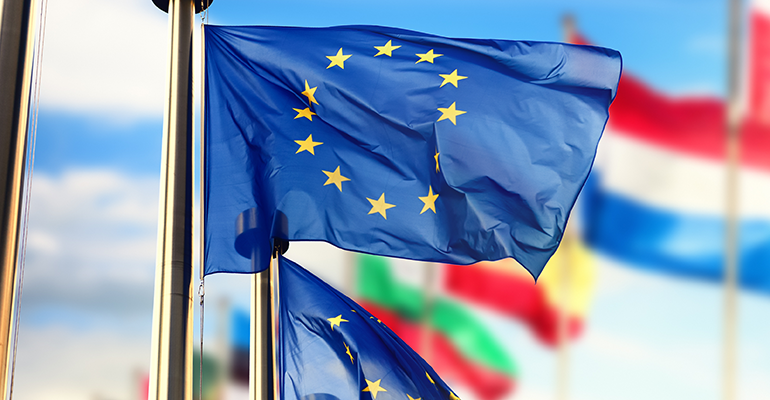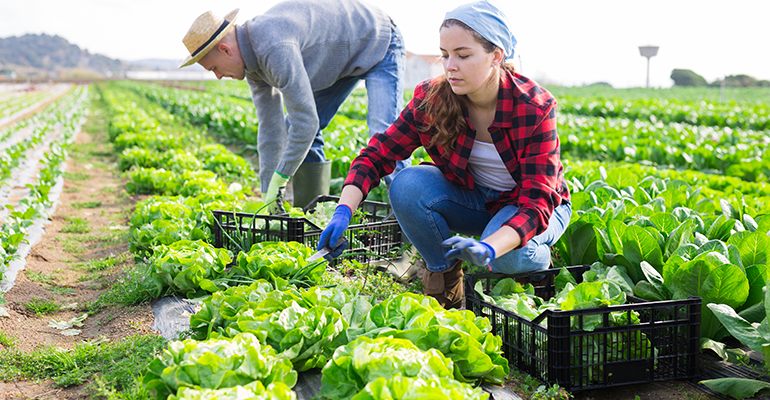News
EU Parliament strengthens proposed sustainability regulation
8 Jun 2023
Sustainability stakeholders have praised the EU Parliament for making “significant improvements” to the proposed regulation that will make companies accountable for environmental and human rights violations in their supply chains.
In a plenary session on 31 May, EU parliamentarians voted on amendments to the draft regulation proposed by the European Commission, which were adopted on 1 June.
The EU Parliament now has a common position on the Corporate Due Diligence and Sustainability Directive and negotiations with member states can now begin.

The proposed Corporate Due Diligence and Sustainability Directive will require companies in certain sectors deemed to be high-risk – such as the agri-food and forestry industry – to integrate human rights and environmental impact into their governance.
Expanded definition of value chain partners
According to the amended and adopted text, the new obligations would apply after three or four years depending on the company’s size. Smaller companies will be able to delay applying the new rules by one more year. To read the adopted text with amendments, click here.
Under the proposed rules of the Corporate Due Diligence and Sustainability Directive, companies will be required to identify, and where necessary prevent, end, or mitigate the negative impact of their activities on human rights and the environment such as on child labour, slavery, labour exploitation, pollution, environmental degradation, and biodiversity loss.
In one key change, they will also be required to monitor and assess the impact of their value-chain partners including not only suppliers but also sale, distribution, transport, storage, waste-management, and other areas.
Firms will also be required to implement a transition plan to limit global warming to 1.5° and, in the case of large companies with over 1,000 employees, meeting the plan’s targets will have an impact on a director’s variable remuneration, such as bonuses.
 © AdobeStock/tfk
© AdobeStock/tfk
The new rules also require firms to engage with those affected by their actions, including human rights and environmental activists, introduce a grievance mechanism and regularly monitor the effectiveness of their due diligence policy. Information about a company’s due diligence policy should be also available on the European Single Access Point (ESAP) in order to facilitate investors’ access.
The Parliament’s negotiating position was adopted with 366 votes in favour, 225 against and 38 abstentions. Now that the Parliament has adopted its position, inter-institutional negotiations with member states, called trilogues, on the final text of the legislation will start.
Cutting off the ‘cowboy companies’ that flout the rules
Following the plenary vote, rapporteur and Dutch MEP Lara Wolters from the Group of the Progressive Alliance of Socialists and Democrats said: “The European Parliament's support is a turning point in the thinking about the role of corporations in society. A corporate responsibility law must ensure that the future lies with companies that treat people and the environment in a healthy way - not with companies that have made a revenue model out of environmental damage and exploitation.
“Most companies take their duty towards people and the environment seriously. We help these companies with this ‘fair business law’. And at the same time, we cut off those few large cowboy companies that flout the rules,” Wolters added.
‘Significant improvements’ on original proposal, say sustainability stakeholders
The result of the vote was welcomed by environmental and social governance groups, who see the proposed directive as a chance to enhance business responsibility for human rights and the environment.
A joint statement issued by non-profits, the Rainforest Alliance, Solidaridad Network, Fairtrade, and the Fair Trade Advocacy Office, said the Parliament introduced “significant improvements” on the proposal from the European Commission, particularly in requiring companies to assess the potential or actual adverse impacts that their purchasing practices and business models may have on human rights and the environment.
“This is a significant improvement to the proposed directive for workers and farmers who ultimately pay the price of Unfair Trading Practices (UTPs),” said May Hylander, policy and project officer at the Fair Trade Advocacy Office.
The Parliament also improved the Commission’s proposal by recognising the right to a Living Income, alongside the right to a Living Wage. One-third of the food we consume is produced by smallholder farmers, independent economic actors who earn an income rather than receiving a wage. Many of them struggle to earn enough to afford a decent standard of living for their household, let alone adopt more sustainable production practices.
 © AdobeStock/JackF
© AdobeStock/JackF
“Elevating the recognition of the right to a living income within the CSDDD can prompt companies to closely examine their purchasing practices, making meaningful contributions to lifting smallholder farmers out of poverty” said Catarina Vieira, EU policy advisor for Solidaridad.
Nevertheless, the non-profits said the position of the EU parliament was not perfect. Notably, for instance, it failed to reverse the burden of proof, key to ensuring access to justice for victims, and eliminates the article that outlines the duty of directors in setting up and overseeing a company’s due diligence process.
“Despite this, the European Parliament possesses a robust mandate for trilogue negotiations. Its position is more closely aligned with the OECD Guidelines and UNGPs [United Nations Guiding Principles] and offers a higher likelihood of practical effectiveness,” they added.
The proposed regulations have teeth, and non-compliant companies will be liable for damages and can be sanctioned by national supervisory authorities. Sanctions include measures such as “naming and shaming”; taking a company’s goods off the market; or fines of at least 5% of the net worldwide turnover. Non-EU companies that fail to comply with the rules will be banned from public procurement in the EU.
To read more about the Corporate Due Diligence and Sustainability Directive and how your company can prepare, click here.
Related news

California companies required to disclose heavy metal content in baby food
10 Jan 2025
As of January 2025, baby food manufacturers selling in California must disclose test results for four heavy metals – arsenic, lead, cadmium, and mercury – via an on-pack QR code.
Read more
Snack trends, ingredient claims, and plant-based perceptions: Highlights from Fi Europe 2023, part 1
7 Dec 2023
Value-led snacking, sustainability storytelling, and the importance of having a ‘star ingredient’: we asked consumer analysts and market experts at Fi Europe about the trends and innovations that are shaping the food industry.
Read more
Confirmed: California bans four ‘toxic’ food additives
10 Oct 2023
Four food additives, including the colouring Red No. 3, will be banned in food in the US state of California over safety concerns, with public health campaigners hoping this will spark a nationwide ban in the coming years.
Read more
Advocacy groups condemn EU Commission for backpedalling on animal rights
3 Oct 2023
Amid rumours that the EU may abandon its plans to improve animal welfare in farming and end the use of cages, many stakeholders have condemned this possibility and urged the EU to reconsider.
Read more
Poland and Ukraine attempt to resolve grain dispute
29 Sep 2023
Poland and Ukraine have begun talks to try to resolve a dispute regarding the ban on Kyiv’s grain imports that prompted Kyiv to file a lawsuit to the World Trade Organization.
Read more
The EU may be set to scrap its sustainability commitments
27 Sep 2023
A speech delivered by President Ursula von der Leyen last week inferred that the EU could be drawing back on its commitments to create a more sustainable and healthier food system.
Read more
Industry first: Mosa Meat becomes first cultivated meat startup to gain B Corp certification
11 Sep 2023
A first for the industry, Dutch cultivated meat company Mosa Meat announced that it has received B Corp certification and will soon apply for regulatory approval across the globe.
Read more
German supermarket trials climate-centric pricing model
29 Aug 2023
German discount supermarket Penny has trialled increasing product prices to mirror their health and environmental costs.
Read more
EPR fee delay spurs concerns over UK’s sustainability commitment
8 Aug 2023
The UK government’s decision to push back the introduction of fees for the Extended Producer Responsibility (EPR) due to inflation has raised doubts about whether this sustainability commitment will ever be realised.
Read more
Latino-owned food startups tackle climate change
25 Jul 2023
A growing list of Latino-founded food and beverage startups in the US are putting sustainability at the forefront of their businesses for the sake of the planet.
Read more